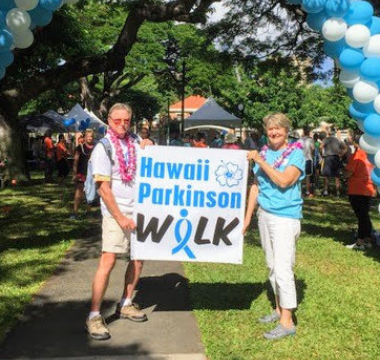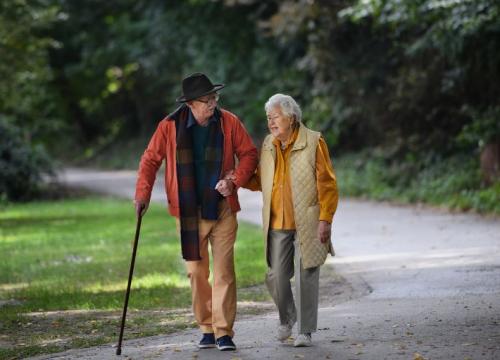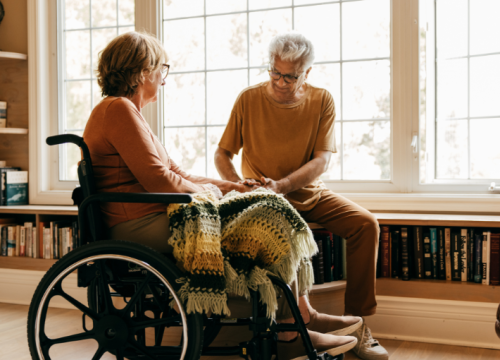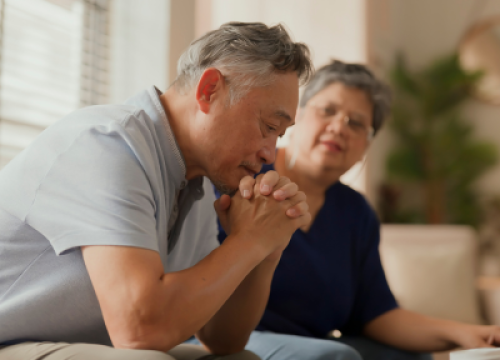Caregivers Share Their Best Caregiving Advice
In anticipation of the Parkinson’s Foundation 2018 Caregiver Summit|Cumbre Para Cuidadores on December 1, in English and Spanish, we asked caregivers for their advice for caregivers and care partners who are new to the Parkinson’s disease (PD) community. Each of these caregivers will be attending the Caregiver Summit as a recipient of our Support Group Leader Travel Scholarship, made possible by Presenting Sponsor ACADIA Pharmaceuticals.

“Research, read, ask, find resources and programs that can help you understand Parkinson’s and can help you support your family. This is a disease with many facets and you have to be prepared to understand and face the changes. Find support in close relatives, friends and programs. The changes that are going to happen is not only happening to one person, it is also with ourselves. We have to be well to be able to help!”
- Adriana from the Orange County Parkinson Group in Anaheim, CA
“Don’t be in a rush to learn everything that exists about Parkinson’s. There is too much information out there to try to absorb all at once. Focus on the primary symptoms of your loved one and try to learn the cause and how to treat them. I have seen new caregivers break down because they felt they did not know enough to be helpful to their spouses. Support groups are an amazing way to do this, but everything can’t be done all at once. Attend group meetings on a regular basis, including caregiver-only meetings, take advantage of their educational and social offerings. Don’t just attend, become involved. It will help you build your “family” and give you a sense of helping others.”
-Art from the Hagerstown Parkinson’s Support Group in Hagerstown, MD
“Even as life changes, never stop striving to increase the qualities of your life together.”
-Judith from the Parkinson’s Support Group of the Finger Lakes in Canandaigua, NY
“My advice for caregivers caring for someone with Parkinson’s is to:
- Remember when you get angry or frustrated; it's the disease, not the person who caused this. Your loved one didn't ask for this to happen.
- Seek out a movement disorder specialist, as well as other care specialists who have the best health interest in mind for your loved one. Find another one if you don't feel like your loved one is getting the best care.
- Continue your hobbies, connect with friends, keep your alone time and whatever else makes you feel happy and rejuvenated.
- You are NOT Superwoman or Superman. ASK for help. Family and friends do not live with you ― so they do not see or understand your daily life. You may be doing such a great job keeping it all together that they don't think they can help.
- Take care of YOUR Health, spiritual needs and emotional needs. If you don't take care of YOU, you can’t take care of your loved one.”
-Camille from the Living with PD Under the Age of 60 Group in Big Lake, MN

“Learn as much as you can about Parkinson's so that you can understand what your partner is going through, what parts of their bodies and minds are affected and encourage them to different ways to slow progression, such as diet and exercise. Help your partner find the types of exercise that they like and join them. Exercise helps us all! A caregiver support group is a wonderful way to learn and share ideas and solutions with others who understand our situation. Make sure you do things you enjoy for and by yourself sometimes. Taking care of yourself enables you to take better care of your partner.”
-Fran from the Hilo Parkinson’s Group in Hilo, HI
“Stay in the present if you can... looking back at what used to be or thinking of the future, robs you from appreciating this moment. Look for silver linings ― there likely will be some. They may be deep, and they may not show themselves immediately, but you'll find them. Reach out to friends and family for support, even the smallest ways of connecting can make a big difference. If fear or worry start to take hold, try getting out in nature, no matter the weather, it can truly be "a breath of fresh air" to help you shift gears. Honor yourself and take good care of who you are, emotionally, spiritually, physically.”
-Katie from the Flatheat Valley Parkinson’s Support Group in Kalispell, MT
“My recommendations for caregivers are to:
- Learn about Parkinson’s and its stages.
- Get training for caring for someone with Parkinson’s.
- Practice self-care if you’re a caregiver.
- Find ways to maintain your physical and mental health.
- Maintain a good quality of life.”
-Eneyda from the Fundacion Puertorriqueña de Parkinson, Inc. in San Juan, Puerto Rico

“Read all the Parkinson's Foundation literature. Then put it aside and live your partner's disease as it unfolds because it will not be exactly like anyone else's. Understand that your partner will have ups and downs, and so will you. You both need your independence. Understand that it sometimes will seem impossible and other times all will seem so well. Each of you needs support. The best help we have found has been in support groups, where we’re reminded we are not alone. Find one for caregivers so you can communicate with others on the same journey. Find the best movement disorder specialist in your area, not simply a neurologist. They really "get it." Most of all, have a sense of humor. If that already exists in your relationship, all the better. If not, it is the most essential thing for each of you to develop.”
-Maryanne from the Talking Parkinson’s Group in Burlington, NC
“My top three pieces of advice are:
- Accept change.
- Don’t forget to take care of yourself.
- Make sure you have a good interdisciplinary health care team that includes your primary physician, moving disorder specialist, physical therapist, speech pathologist, psychologist, social worker and dietitian.”
-Isabell from the PJ Parkinson’s Support Group in Knoxville, TN
“Love is going to get you and your loved one through this. There are many challenges that you will both face, but doing it together is what will keep you going. Parkinson's has many emotions involved. There are times of anger, sadness, hope and of course silliness. We as caregivers will have to understand and accept these emotions. Listen when your loved one wants to express these emotions, I know you want to encourage them to keep going, but letting them talk about their negative feelings is also important. Support your loved one and support yourself. Find a network of family, friends and resources to help. When times are rough, focus on the love you have for the person you are caring for. And don't forget to laugh and to hug.”
- Michelle from the Juntis Group in Camarillo, CA
Related Blog Posts

3 Essential Resources for 3 Different Kinds of Care Partners

Advanced Parkinson’s Care: Practical Ways to Help Your Loved One
